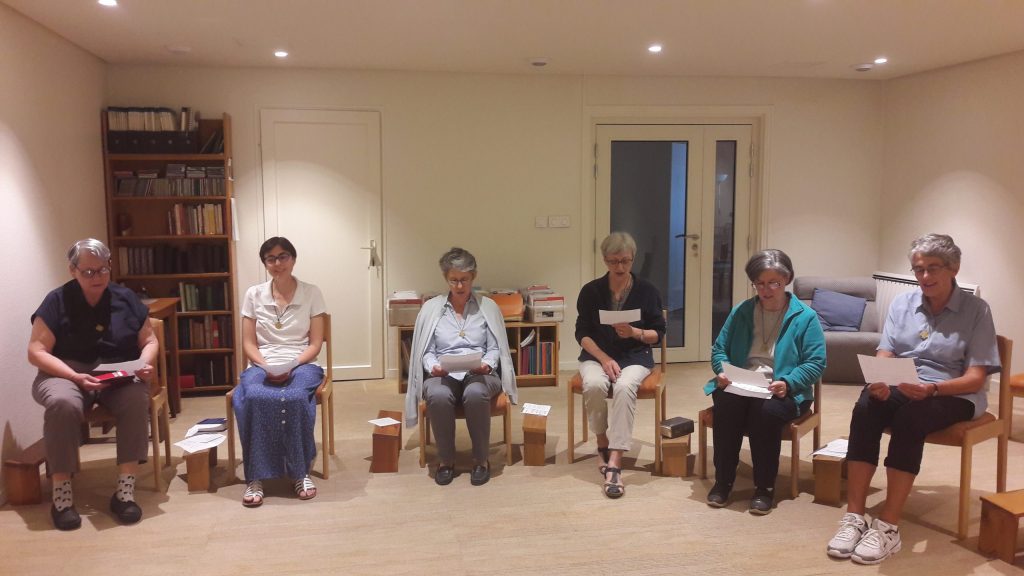Becoming sister
Sister Anne-Catherine's entry into her "third year", a time for prayer and reflection.
The last stage of formation, the third year is a time for prayer and reflection, to deepen the spiritual life and the response to the vocation received (Constitutions of the Congregation).
« I feel that it is a GIFT that is being offered to me now, a unique gift in the life of a Cenacle Sister, of great value according to the testimonies of those who lived through this stage a few years ago; a gift that commits me, because it will bear fruit provided that I enter it fully.
So here we go! I am going to slow down, keep myself apart, put myself at the school of the heart of Christ, take more time to listen to the Lord in prayer, spiritual reading, small material services, strong times, sessions… All this to love better and serve forever in the mission of the Cenacle. And I entrust to Jesus all those who are dear to me and whom I will not see often this year. »
Sister Anne-Catherine
